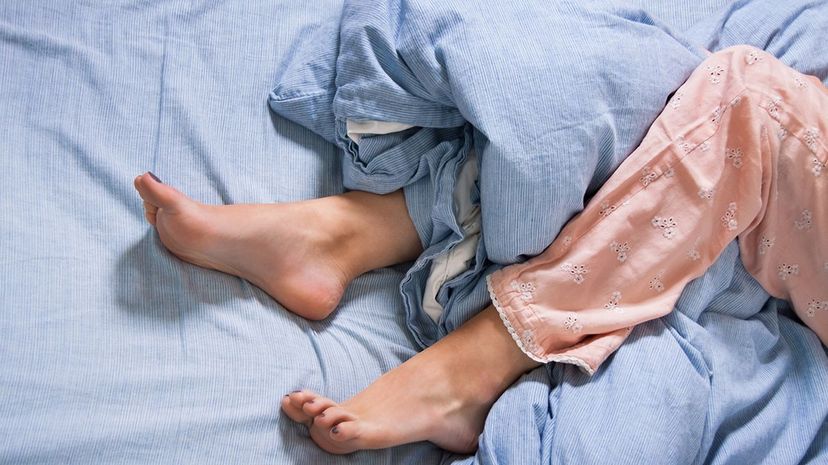
Not all of us want a hug when we're stressed out. Some people, particularly those with sensory processing problems, do want a hug, but might be uncomfortable getting it from a person. Temple Grandin, an animal scientist and autism activist, had a solution.
Grandin invented a "squeeze machine" that helped relax some children with autism and attention deficit hyperactivity disorder (ADHD). Autism affects the ability to interact and communicate, and ADHD is a mental disorder that impairs impulse control and ability to focus. Some autistic children seek physical pressure to cope with overstimulation. The idea behind Grandin's invention is that deep-touch pressure, like cuddling, firm stroking or hugging, can be calming. Could adults without autism benefit from the same reactions to physical pressure as autistic children?
Advertisement
Some industrious folks think so. Companies like ZonLi and Gravity Blankets have introduced weighted (or "gravity") blankets that weigh about 3 to 25 pounds (1 to 11 kilograms) and are designed to stimulate the sympathetic nervous system into its resting state (a feeling of being hugged) as opposed to the "fight or flight" feelings that keep us alert to danger but also up when we really should be sleeping.
But what's the evidence that these blankets, like other sleep technology, alleviate ailments like anxiety, insomnia, stress and a whole host of other conditions might benefit from deep-touch pressure?
Advertisement